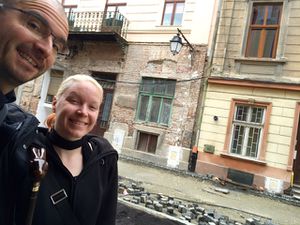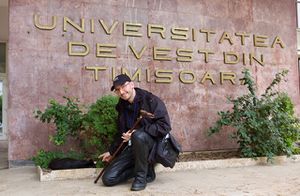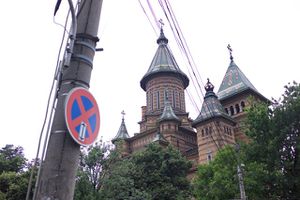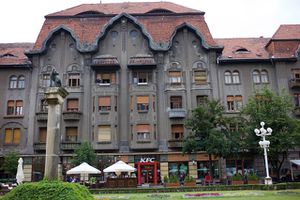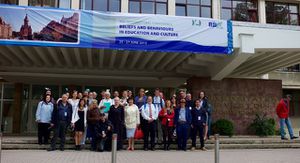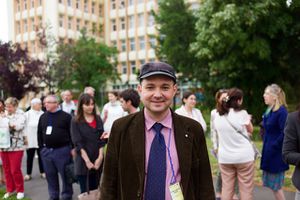2015 06: Conference Romania - Vampire Empire: Difference between revisions
No edit summary |
No edit summary |
||
| Line 41: | Line 41: | ||
<i> | <i> | ||
* [[Transylvanian Society of Dracula/|All about the Transylvanian Society of Dracula]]<br> | * [[Transylvanian Society of Dracula/|All about the Transylvanian Society of Dracula]]<br> | ||
* [[All Zombies and Vampires| More about Vamire and Zombies]] | |||
* [[2015 10 Letter from Castle Dracula|Book News: Vampyres among us!]]<br> | * [[2015 10 Letter from Castle Dracula|Book News: Vampyres among us!]]<br> | ||
Revision as of 16:00, 6 November 2018
Source: Vampire Empire Newsletter (Jeanne Youngson), New York, End 2015
Conference “Beliefs and Behaviours in Education and Culture”
at West University of Timișoara, Romania, June, 25-27, 2015
[More articles from MB] [Articles about MB]
BY MARK BENECKE
(Transylvanian Society of Dracula / Vampire Empire)
In the past two years, two romanian books about the cultural history of vampires, Romania and the alleged relation to Vlad Țepeș (at least alleged by Florescu & McNally, both from the U.S. East Coast), were published: Searching For Dracula In Romania: What About Dracula? Romania's Schizophrenic Dilemma (Romania Explained To My Friends Abroad) by Catalin Gruia, 2014, ISBN 978-1495471216, and the ongoing studies of Marius Crișan under the tile of his Ph.D. thesis Imagining Transylvania: The Construction of a Mythical Space from Stoker's Predecessors to Dracula.
Before, quite often, Raymond McNallys work set a certain standard. As a reminder: “Dr. McNally”, wrote the New York times in his obituary (2002), “a professor at Boston College specializing in Russian intellectual life, began his odyssey as he was reading ‘Dracula' by Bram Stoker, and noticed that many places in the book were real. Because Transylvania and Borgo Pass existed and the train schedules in the book were accurate down to the minute, he reasoned that Dracula might have been based on a real person. He headed for Transylvania, part of present-day Romania, talked to peasants in the mountains and studied monastery records, Russian tales and Byzantine manuscripts. The result was his contention, still a matter of debate among academics but heartily endorsed by Romanian tourism officials, that a 15th-century nobleman, Vlad Tepes, was the basis for the fictional Dracula.“
Probably inspired by this, yet also inspired by modern studies into vampyre subcultures, the ‘Twilight' movies, and gender studies, all of which did not exist in the 1970s, a quite exquisit crowd of vampyre and vampire researchers now met — below radar level since the conference was sponsored by the orthodox church — for a workshop that lasted one day for those who took part in the university lectures, yet much longer for those who chose to take a cultural tour on the next day. (The tour proceeded on Romanian schedule, i.e., it lasted from 9 in the morning until 2 a.m. even though it was considered to end five hours earlier.)
The actual seminar on June 26 was delivered be the following international speakers (in order of appearance which was quite different from the order in the program):
- Sam George — Representation of the Pied Piper and Dracula Myth in Germany and England
- Marius Crișan — Deconstructing the Transylvanian Stereotype
- Kaja Franck — Dracula, the Big Bad Wolf, and the myth of Gothic transylvania
- Hans de Roos — Count Dracula’s Adress
- Kristin Bone — The Impact of Fictional Stories upon associated locations
- Nancy Schuman — Emotion and Identity in Vampyre literature
- Mark Benecke & Ines Fischer (double feature) — (1) Large subculture study into a Central European contemporary vampyre group (the word “contemporary” substituted the original “blood drinking” since it was considered too hot to handle on site) and (2) Statistical details concerning the study above (European Real-Life Vampyre group)
- Magdalena Grabias-Zurek — Gothic and Horror in Contemporary Cinema
- Raphael de Boer — (Gendered) Vampires Lecter and Bill ('Silence of the Lambs')?
Since the abstracts are available online at http://tsdracula.org/, I just briefly want to mention that the connections to German myths like the ‘Rattenfänger von Hameln’ as well as to Hannibal Lecter were most delighting, some photos about real places that become fictional in the ‘Twilight’ movies and then, due to the demand of tourists (like “Castle Dracula” in Romania) a mixture of both, was pleasant, and the fact that the address of the Count is now known after meticulous research of Hans de Roos is more than satisfiying. It was a lot of work for everyone — in a field, that apart from professor for gothic studies William Hughes who luckily was also present, is probably far beyond funding for most of us.
I all seriousness, we cannot thank conference co-organizer Marius Crișan enough for sneaking all of the speakers, i.e., a whole parallel conference, into the rather conservative environment of this education (and educational) conference. Like I said, our meeting was co-sponsored by the church and embedded into an university environment — both is usually neither the case in the European Transylvanian Society of Dracula meetings that focus on small groups discussing topics on site nor in the more scholastic speeches about genealogy or historic events that I heard before. Many of the authors published articles and books that I strongly recommend. Our own conference contribution (Fischer & Benecke) was published as “Vampyres among us!” (ISBN 978-3-939459-95-8) and released just a few days after the conference.
suggested readings
- Blutdurst - Wie entsteht Vampirismus? GERMAN LANGUAGE
- How to avoid a confrontation with a vampire GERMAN TEXT
- Eine Wurmkur gegen den Vampirismus GERMAN TEXT
- «Vampire waren zu jeder Schweinerei fähig» GERMAN TEXT
